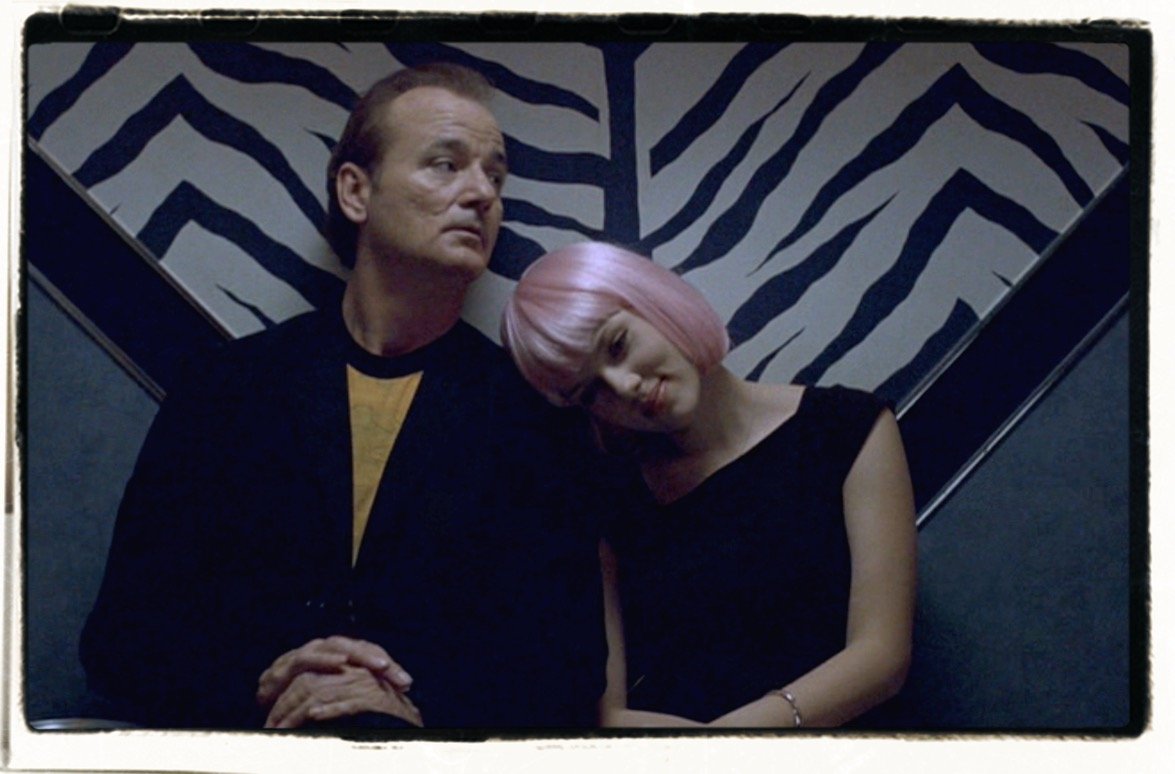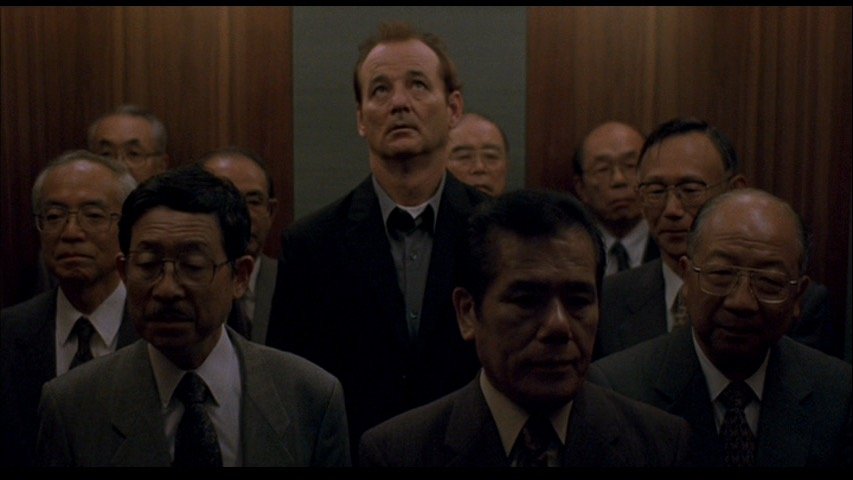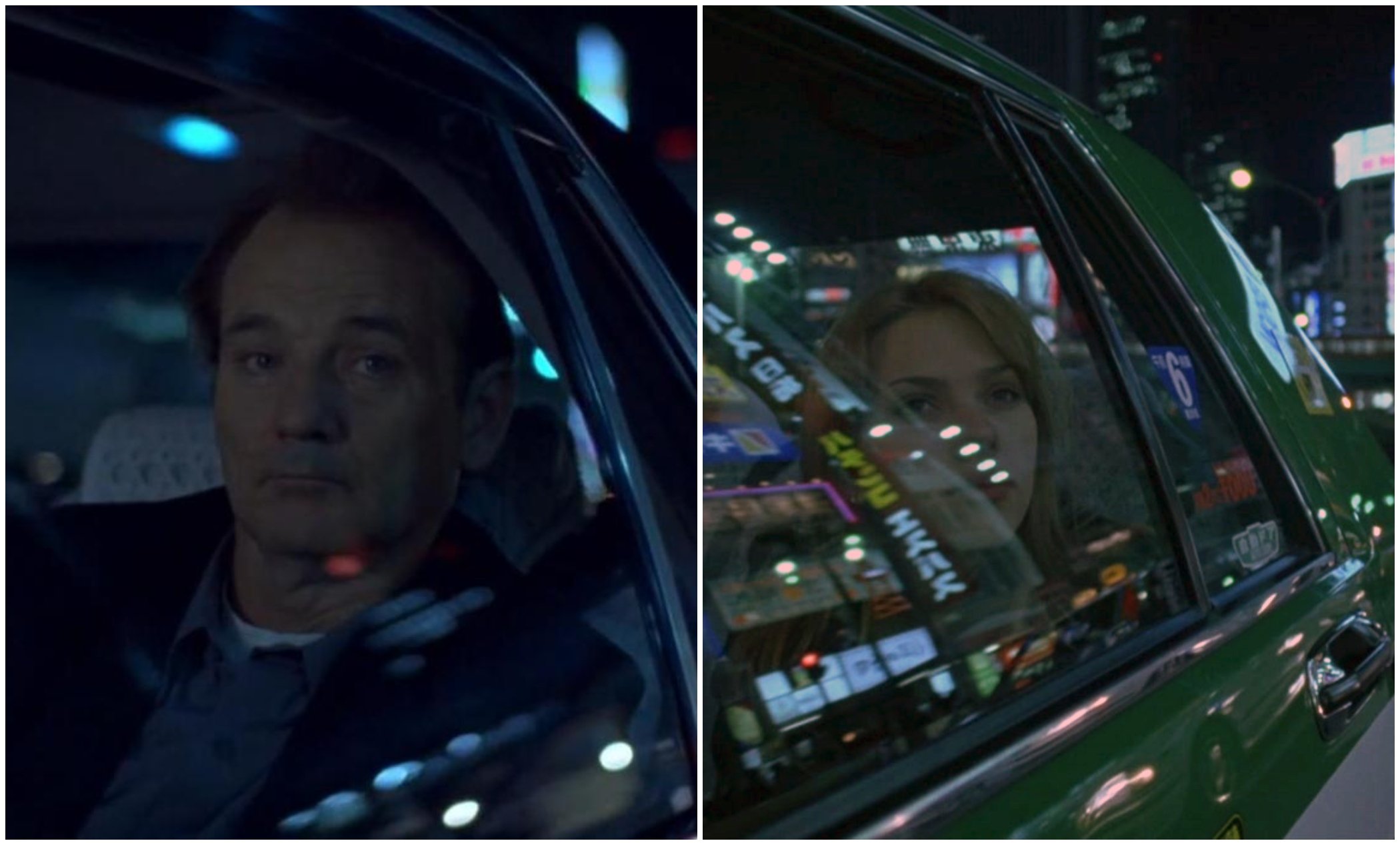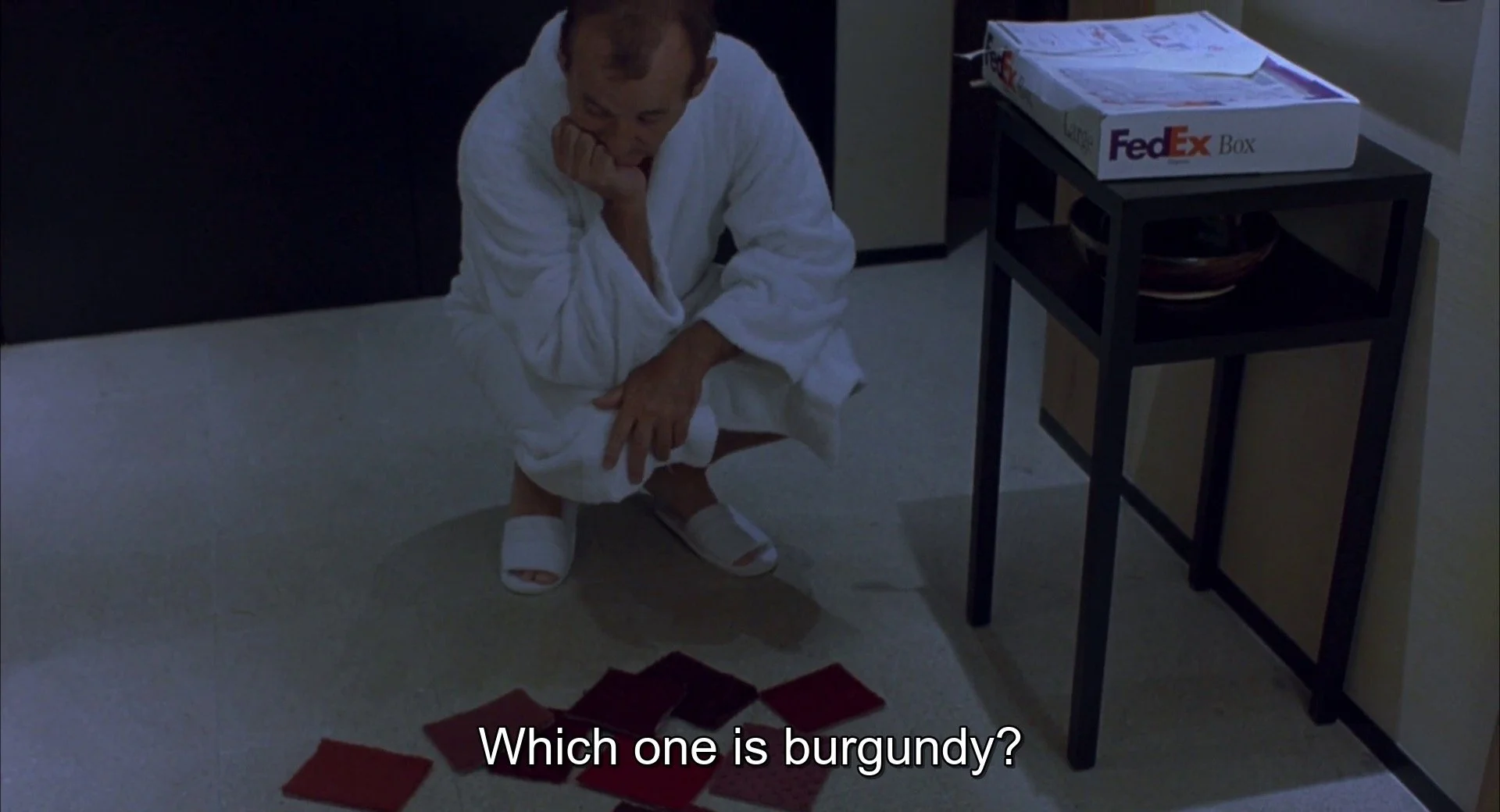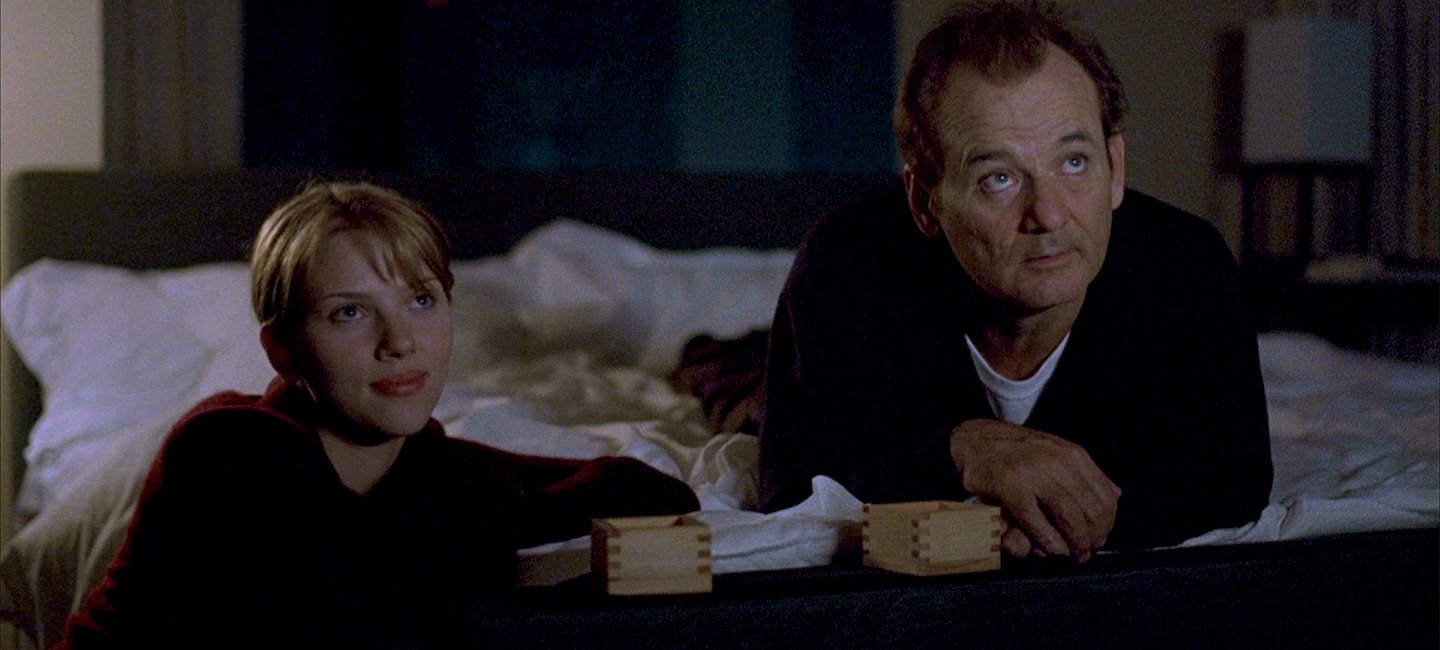Revisiting Lost in Translation
Two decades have passed since the hazy world of Lost in Translation came to our cinema screens. April 2004 feels like a lifetime ago, doesn’t it?
An unconventional romantic tale, Lost in Translation was a much-needed breath of fresh air amidst the formulaic and disposable content that Hollywood has become known to churn out. For me, this movie is something of an unsung masterpiece, transcending the realm of a quirky romance, and standing instead as a sublime piece of cinematography, storytelling, and exquisitely crafted characters.
While some critics have attempted to narrow the movie's scope to merely exploring cultural miscommunication between American and Japanese culture, I find this perspective myopic and about as deep as a puddle on a hot summer day.
With all that off my chest, I found Lost in Translation to speak to something profound about the human condition, a poignant exploration of the struggle for self-expression, the fallibility of human communication, and the search for meaning. And in the process, the movie also manages to explore the nuanced realities of love and success as we navigate the complexities of aging.
The Universal Need for Connection
When our surroundings feel unfamiliar or chaotic, we instinctively gravitate toward what feels familiar
Together, Bob and Charlotte represent the fleeting yet profound connections that can unexpectedly form between strangers. Both are searching for meaning in a world that feels overwhelming and disconnected. Not only are they are experiencing alienation with their significant others, but at the same time, they struggle to relate to their disorienting surroundings of Tokyo — a vibrant yet isolating backdrop that both amplifies their feelings of disconnection and heightens their shared bond.
Through their meeting, they offer each other a refuge from the alienation they experience and their bond reflects a universal truth: when our surroundings feel unfamiliar or chaotic, we instinctively gravitate toward what feels familiar and grounding, even if it’s found in the most unlikely of places.
Seemingly Opposites but Perhaps Not So
She symbolizes the hopeful yet uncertain exploration of identity and purpose, he reflects the disillusionment of a life that feels hollow despite outward achievements.
Charlotte and Bob represent the bookends of life. Recently married and unsure of her purpose, Charlotte played by Scarlett Johansson is searching for meaning in her life and relationships. While Bob, is an aging actor symbolizing the weariness and disconnection that can come with age, success, and unfulfilled personal relationships. While she symbolizes the hopeful yet uncertain exploration of identity and purpose, he reflects the disillusionment of a life that feels hollow despite outward achievements. Together, they mirror the universal human struggle for connection and understanding but at different stages of life.
The Illusion of Success and the Emptiness of Life
We’ve all strived for something we believed would bring happiness and fulfillment, only to achieve it and feel an unexpected void instead.
What Bob truly yearns for is a sense of connection—to himself, to others, and to life. You can achieve great fame, see your face on billboards, appear on television, and earn millions endorsing a whisky, but that lingering sense of being lost in life reminds us that even the pinnacle of success can feel hollow without meaningful connection. In many ways, his characters represents all of us.
Bob Harris, the most miserable looking person in an elevator full of grey-suited Japanese salary men. Quite the achievement.
Emotional and Cultural Displacement
Tokyo’s vastness mirrors the inner emptiness and existential longing the characters experience
Many people can relate to the experience of gazing out at a city, contemplating the vastness of life unfolding below, yet feeling no real connection to it. In Lost in Translation, the bustling, neon-lit Tokyo provides a vivid backdrop that underscores this sense of isolation. Despite being surrounded by endless activity and crowds, Bob and Charlotte feel disconnected, their emotional and cultural displacement mirrored in the overwhelming urban landscape around them.
The silence and solitude of the taxi rides create space for introspection.
The struggle of expression
The challenges of articulating inner struggles and the emotional distance that can exist even in close relationships
Charlotte is recently married and struggling to communicate her emotions and connect meaningfully with her husband. In an attempt to express these feelings, she reaches out to a friend over the phone but fails to find understanding. This moment underscores the theme of miscommunication, a central thread in the film.
The Universality of Miscommunication
The film is filled with moments of disconnection and miscommunication, extending beyond cultural differences. While some viewers, including Japanese audiences and socially conscious critics, may focus on the cultural miscommunication between the American and Japanese characters, an equally significant amount of miscommunication occurs between the American characters themselves. Charlotte’s interaction with John’s friends, particularly Kelly, the bubbly actress, illustrates her struggle to connect with people she finds shallow or insincere. Kelly’s personality and self-centered chatter alienate Charlotte further, as she feels unable to relate or engage meaningfully.
John, a busy photographer, is preoccupied with his work and fails to notice Charlotte’s feelings of loneliness and disconnection. Bob’s phone calls with his wife, Lydia, are marked by a stark emotional distance. While she talks about trivial domestic matters like picking carpet colors, Bob’s attempts to share his feelings about his situation in Tokyo go unnoticed or dismissed. Their dialogue reveals their strained relationship and lack of mutual understanding.
While Bob and Charlotte form a deep connection, there are moments of subtle miscommunication or missed opportunities to express their thoughts. Their relationship is defined by what is left unsaid as much as by their interactions.
While much of the film emphasizes cultural displacement in Japan, the karaoke scene shifts the focus to their shared humanity. But while joyful, this scene also has a sort of ephemeral quality, foreshadowing the transient nature of Bob and Charlotte’s relationship. It’s a moment of connection that will eventually pass, just like their time together in Tokyo.
Do we ever find out what happens to Bob and Charlotte? No. But does it really matter? In many ways, I think it’s better that we don’t. Life itself is a long, ambiguous adventure, full of unanswered questions and uncertain endings.
What truly resonates is the universal longing for genuine connection—a desire that transcends outcomes and lingers in the shared moments of understanding between people, ultimately that is what all people want right?

